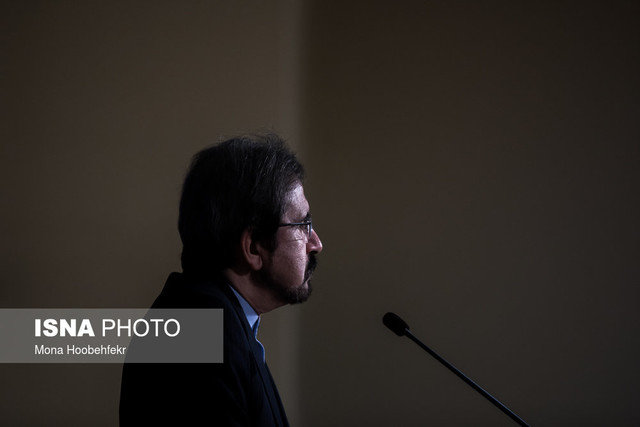Iran denies charges levelled by German media

TEHRAN – Iran’s Foreign Ministry spokesman has rejected recent allegations by some German media outlets against Tehran regarding the arrest of a person who they claimed was spying for Iran.
Bahram Qassemi dismissed the claim that an Afghan-German national has been apprehended on charges of spying for Iran, rejecting that the alleged person has had any connection with the Islamic Republic of Iran.
“We are not surprised to hear such news amid baseless accusations fabricated by those who seek to ruin Iran-Europe relations at this important and sensitive juncture,” said Qassemi.
“We have said it time and again that there are some people who are opposed to the age-old relations between Iran and many European countries, especially the European parties to the JCPOA, people who spare no effort to press charges and make allegations in order to strain these ties,” Qassemi explained.
The reaction comes days after unconfirmed reports in the German media suggested that a 50-year-old Afghan-German dual national who worked for the German military had been arrested on suspicion of transferring sensitive military data to Tehran.
Germany’s federal prosecutor’s office said on Tuesday that Abdul Hamid S. had been remanded in custody pending an investigation.
The German defense ministry did not confirm the report although it said it was aware of the espionage case involving a member of the military.
The reports come following a decision by the European Union to add the names of two Iranians and an Iranian intelligence unit to its terrorist list. Iran has strongly condemned the move, saying it has been based on fake claims that Tehran was seeking to kill its opponents on European soil.
Iranian authorities believe the renewed wave of accusations against Tehran is directly linked to a move by U.S. President Donald Trump in May last year to pull out of the JCPOA. They say those accusations are meant to heap more pressure on European signatories to the JCPOA, namely Britain, Germany and France, as they try to preserve the deal through offering special financial mechanisms that could protect trade with Tehran from U.S. sanctions.
SP/PA
